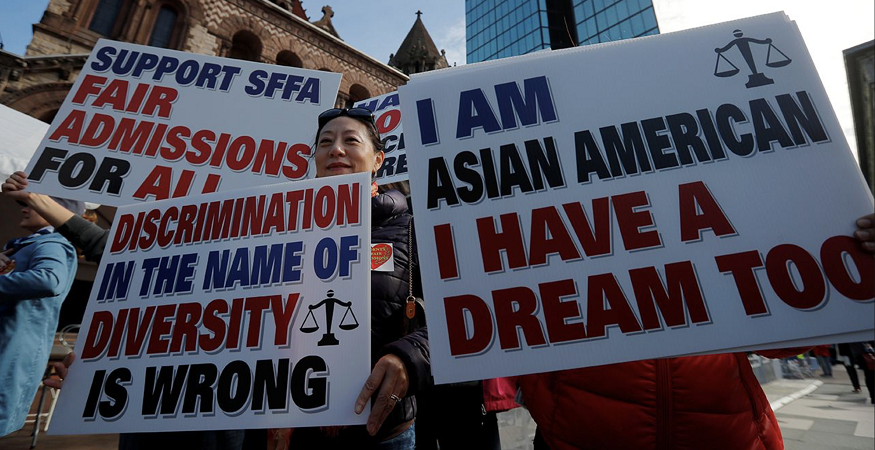Opinion: Harvard lawsuit fuels affirmative action debates
Harvard is in the midst of a trial, with the lawsuit claiming that Harvard has been racially discriminating against Asian-Americans in their admission process by having stricter standards for them to get in as well as capping the number of Asian-American applicants that are admitted. The trial has consisted of contentious debates between the plaintiffs — Students for Fair Admissions — and the university.
This has fueled a national discussion on affirmative action policies and whether they do more harm or good for creating fair and diverse college campuses. Affirmative action has been a long-debated policy because that aims to increase enrollment of minority students by considering race when going through applications. This lawsuit has been concealing alternative motives to get rid of affirmative action under the guise of helping Asian American students, but the students are just pawns.
Edward Blum, a 66-year-old litigator who heads Students for Fair Admissions, a group of Asian-American students rejected by Harvard, sued Harvard for the alleged discrimination in 2014. Harvard has denied these claims, and by considering race helps Harvard to get a better picture of the life experiences that certain minority groups have faced.
Students for Fair Admissions, has used draft reports that Harvard conducted on admissions to argue that being Asian is negatively associated with enrollment. Harvard claims the drafts are incomplete, with their attorney William Lee saying, “If you torture the data long enough, it will confess to anything.”
Blum’s conservative agenda is the driving force behind the lawsuit. The goal of the plaintiffs is to eliminate race as a factor in the admissions decisions and use alternative methods for admissions policies. If affirmative action is eliminated Harvard’s diversity in their student body would drastically decrease.
On one side of the debate, Asian-Americans are seeking equal consideration and protection, while on the other side, the lasting implications of removing affirmative action are looming on various universities. Harvard claims that Blum is not really interested in getting more Asian students into Harvard, and that his real agenda lies in facing the Supreme Court to end affirmative action.
Blum has been engrossed in discussions about affirmative action — including over two dozen lawsuits challenging it. He filed a suit against the University of North Carolina claiming that the race-conscious policy in the admissions process is illegal. He has also taken issue with the University of Wisconsin-Madison and taken the University of Texas to the Supreme Court two times where he argued that a white student was not admitted based on her race — Blum lost.
The Trump administration has shown support for the plaintiffs, which also has caused many people to question Blum’s intentions with the case. The concern here is that if this case makes it to the Supreme Court, it may end affirmative action due to the majority of the justices being conservative, especially with the recent nomination of Brett Kavanaugh.
Affirmative action at its core is meant to address the deep-seated inequalities that America is built off of by providing opportunities that have been historically withheld from certain groups. Opposers of affirmative action see it not as leveling out the field, but as taking away opportunities from white students and giving them to “undeserving” students of color.
Asian-American students are not on the same page about the case — some support the SFFA and some support Harvard and affirmative action. Thang Diep, a senior at Harvard, told The Guardian, “I don’t think I would be here if test scores were the only thing that mattered.”
Diep will testify on behalf of Harvard saying, “At its core, [opposition to affirmative action is] relying on this notion of a zero-sum game: that if one group gets something, another group can’t.”
Diep’s sentiments reflect how many people misinterpret affirmative action as a type of “reverse-racism.” But he also brings up the important point that identity is a crucial factor in student experiences, achievements and the opportunities given to them.
While ensuring there are opportunities for disadvantaged students, it doesn’t mean that white students will not also have opportunities. Affirmative action means that we are addressing the unique experiences and identity that shapes a person as well as understanding that those diverse experiences and backgrounds are a positive thing for all universities.





